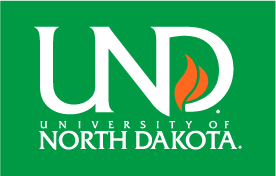

So, you’ve decided to enroll in university online. Maybe you’re a new student, looking to save money by taking advantage of the affordable tuition and the savings of living at home during college. Or maybe you’re returning to school to complete your degree. Maybe it’s just time to go ahead and earn that master’s you’ve been thinking about. Regardless, you’re motivated and ready to go. So you probably don’t want to get stuck in a situation where, having made your decision, you have to wait several months before you can start school. That’s where this ranking comes in.
Traditional academic schedules allow you to start courses in the fall and spring. Some allow you to start in summer, but these are more rare. The schools in our ranking harness the flexibility of online delivery to provide many more start dates per year. For the purposes of our ranking, we required that in order to be included, schools had to provide students with at least four start-dates throughout the year. Turns out, even the schools with the fewest start-dates in our ranking provide at least six of them–on average one every two months (about the length of most online courses). Some schools provide as many as 12 start-dates. And with the increasing popularity of flex-courses, in many cases there are a few courses for your degree that you can start at any moment. This ranking features the top ten schools you can start any time.
Table of Contents
#1. University of North Dakota
Score: 28

The University of North Dakota offers 76 undergraduate courses in the flex format, meaning you can start them any time. Most of these courses are low-level and will fit easily into whatever degree you decide to pursue. UND offers 40+ online bachelor’s degrees including majors like civil engineering, computer science, cyber security, data science, mechanical engineering, geological engineering, petroleum engineering, public affairs/political science, and social work.
UND has three self-paced enroll any time degree programs. They are:
- BA with a Communication Major
- BA with a Social Science Major
- Bachelor of General Studies
The public affairs/political science majors can be earned as part of a dual-level degree program where the student also earns a master of public administration.
- Tuition: $384.88/credit
- Start Dates Per Year: Flex
- Graduation Rate: 84%
- Number of Degrees: 40+
#2. Arizona State University

Score: 26
Arizona State University is a highly respected public research university and offers one of the most robust selections of online degrees in the country. Among the almost 100 bachelor’s degrees offered online, you will find majors like art history, biochemistry, food industry management, business data analytics, communication, economics, electrical engineering, engineering management, geography, global health, and information technology.
- Tuition: Range between $561–$1,343 per credit hour, depending on your program
- Start Dates Per Year: 6
- Graduation Rate: 63%
- Number of Degrees: 82
#3. Upper Iowa University

Score: 25
Upper Iowa University offers eight fully self-paced degrees 100% online. However, students can also take individual self-paced courses that fit into their online degrees delivered through a more traditional online format. Students can choose to major in criminal justice, graphic design, accounting, business administration, public administration, software engineering, information technology, psychology, or marketing.
- Tuition: $19,475
- Start Dates Per Year: 6
- Graduation Rate: 62%
- Number of Degrees: 28
#4. UMASS Global

Score: 23
Of the 39 online bachelor’s degrees offered by UMASS, nine of them are “MyPath” degrees meaning they are entirely self-paced, competency-based degrees. The MyPath degrees are in general business, GIS and data analytics, information systems management, management and organizational leadership, marketing, supply chain management and logistics, information technology, and organizational leadership.
- Tuition: $500/ credit
- Start Dates Per Year: Self-Paced
- Graduation Rate: N/A
- Number of Degrees: 39
#5. University of Oklahoma

Score: 20
The University of Oklahoma self-paced courses allow students up to 180 days to complete a given course. Self-paced courses can be used while earning your online degree in subjects like administrative leadership, lifespan care administration, aviation, criminal justice, and liberal studies. The University of Oklahoma is actively increasing its self-paced course selection.
- Tuition: $10,285
- Start Dates Per Year: Self Paced
- Graduation Rate: 67%
- Number of Degrees: 5
#6. University of Illinois Online

Score: 20
The University of Illinois Online offers primarily master’s and doctoral level degrees. The one online bachelor’s currently offered is in earth, society, and environmental sustainability. However, there are over 1,200 online undergraduate courses to choose from, and many are offered in the flex format. Flex courses can be started any time and completed at the student’s own pace within 16 weeks of starting the course.
- Tuition: $28,606
- Start Dates Per Year: Flex
- Graduation Rate: 85%
- Number of Degrees: 1
#7. University of Maryland University College

Score: 19
UMUC is the Maryland State University system’s home for its online degrees. Degrees are offered in both 100% online and hybrid formats, and no SAT or GRE scores are required for admittance to the program. UMUC offers 32 online bachelor’s degrees with majors like accounting, biotechnology, business administration, communication studies, computer networks and cybersecurity, computer science, criminal justice, digital media and web technology, and investigative forensics.
- Tuition: $12,336
- Start Dates Per Year: 11
- Graduation Rate: 28%
- Number of Degrees: 32
#8. Liberty University

Score: 19
Liberty University is an evangelical Christian university in the Baptist tradition. Among the extensive selection of bachelor’s degrees online you will find programs like aviation, criminal justice, elementary education, information technology, teaching English as a second language, social media management, Christian leadership and management, religion, and computer science cybersecurity.
- Tuition: $11,700
- Start Dates Per Year: 8
- Graduation Rate: 67%
- Number of Degrees: 33
#9. Colorado State University Global

Score: 17
CSU Global was developed to serve as the university system’s dedicated hub for online degrees. Among the 14 degrees offered by the digital campus are online bachelor’s degrees like computer science, healthcare administration and management, human resource management, human services, information technology, project management, and organizational leadership.
- Tuition: $8,400
- Start Dates Per Year: 12
- Graduation Rate: N/A
- Number of Degrees: 14
#10. Columbia College

Score: 14
Columbia College was originally a Christian women’s liberal arts college, but in 1970 it transitioned to a non-sectarian, co-educational model. The school maintains a mutually beneficial affiliation with the Disciples of Christ denomination. Columbia College sees nearly 16,000 students taking one or more online course every year. Some of the online bachelor’s degree programs offered by the school are computer information systems, criminal justice, healthcare management, human resource management, management information systems, public administration, and sports management.
- Tuition: $11,250
- Start Dates Per Year: 6
- Graduation Rate: 26%
- Number of Degrees: 32

What are the benefits of multiple start dates?
There are several benefits of multiple start dates beyond just allowing you to get started quickly. Essentially, schools that offer multiple start dates usually have courses that run between six and eight weeks. In most cases you can take two of these courses at a time, and each period has about a week or two between the end of one session of classes and the beginning of the next. This significantly increases your flexibility. You might have eight weeks where you can easily complete two courses, followed by eight weeks where you will be more busy and have only time for one course. You may even have periods of time where you can’t fit even one course into your life.
Multiple start dates throughout the year insures that you aren’t locking yourself into a specific schedule for four months at a time. This flexibility is so beneficial when you are trying to plan out your life. It’s not always easy to see four months into the future. So multiple start times per year will allow you to decide on your own pace. It’s also pretty common for online classes to be offered throughout the summer, so you can either take the summer off, or you can step down to one class, or you can take multiple courses per summer session and make up for lighter sessions during the school year. As you can see, the additional flexibility of multiple start-dates is beneficial not just initially, but throughout your academic career.

What are self-paced or “flex” courses?
These courses differ from traditional courses in a few ways. First, you can start and end them at any time. They tend to be competency-based, which means once you’ve learned the material, you take a test, and if you pass then you get the credit. Some schools allow 16 weeks to complete the self-paced course, while others allow 180 days, which is just under half a year. A few colleges have even begun offering entirely self-paced degree completion programs. However, most schools just offer a selection of self-paced courses. Usually courses are common to many different degree programs, so as to be able to take them and easily slot them into your degree as a required class.
Can I earn a full undergraduate degree from online college?
The answer to this varies from school to school. Many schools offer degree completion programs, which are designed to be started after you have completed the 60-credit core curriculum elsewhere. These are great to take advantage of if you attend a local community college first, which with decent financial aid can be practically free. However, more and more universities, including some in our ranking above, are offering full, 120-credit bachelor’s degrees. And in many cases, public universities like Penn State and Arizona State offer these online programs at extremely discounted tuition rates. At both those schools, out of state students pay less than half the price of out of state students who attend the school at the main campus. If you’re an undergraduate student who plans to live at home while completing your degree online, you save even more on room and board. Take all these things into account and you can begin to see why earning a degree online can save you an incredible amount of money.

Why do you include tuition as a factor in a ranking focused on quality?
The cost of university is one of the major concerns facing the United States. A study by the now-closed HOPE Lab at the University of Wisconsin found that 36% of students report being food insecure, while another 36% report being housing insecure. An Ohio State University national student financial wellness study saw 70% of students reporting financial stress, and nearly 60% said they were stressed about the cost of tuition specifically. 32% of students have said they find themselves neglecting their studies sometimes because of money they owe.
According to the National Institutes of Health, stress on financial decision-making (for instance choosing between housing, food, and school) can “precipitate the onset of mood and anxiety disorders.” Science Daily reported findings that depression and anxiety have hidden costs regarding academic performance.
Hunger, housing insecurity, and financial stress all have a negative impact on a student’s ability to learn and perform well academically. This is why we considered cost of a university to be a major factor in its quality. When students can better afford tuition, housing, and food, they will learn better, which will be reflected in their grades, which will impact their success getting into graduate school and moving into the workforce. Affordability directly impacts student outcomes both in school and in the years afterward.

Methodology for ranking the top 10 online universities you can start anytime
Tuition
Affordability is becoming more and more an essential consideration for college students. Being able to acquire a high quality education for an affordable price makes it easier to focus on school instead of financial stress. And if affordable school allows you to work less, you can spend more time on your studies. We awarded affordability points based on estimated annual tuition as follows.
Under $40,000= 1 Point
Under $35,000= 2 Points
Under $30,000= 3 Points
Under $25,000= 4 Points
Under $20,000= 5 Points
Under $15,000= 6 Points
Under $10,000= 7 Points
Graduation Rate
Graduation rate is a measure of how well a school does at seeing students through to the completion of their degree. This makes it one of the most important figures to consider when choosing a school.
We awarded points for graduation rate as follows.
55%= 1
60%= 2
65%= 3
70%= 4
75%= 5
80%= 6
85%= 7
90%= 8
95%= 9
100%=10
Number of Start Dates
As this was the primary consideration of this article, we awarded points for the number of start dates to each school. The article itself required schools to have at least 4 start dates, and we awarded one point for each start date beyond four. We also awarded 10 points for schools that have self-paced/flex courses that can be started at any moment throughout the year.
Number of Degrees
We awarded points for the number of degrees offered by each school, because it doesn’t matter how great a school is if they don’t have a degree you’re interested in. More degrees means more chances the school is capable of meeting a given student’s needs.
Related: